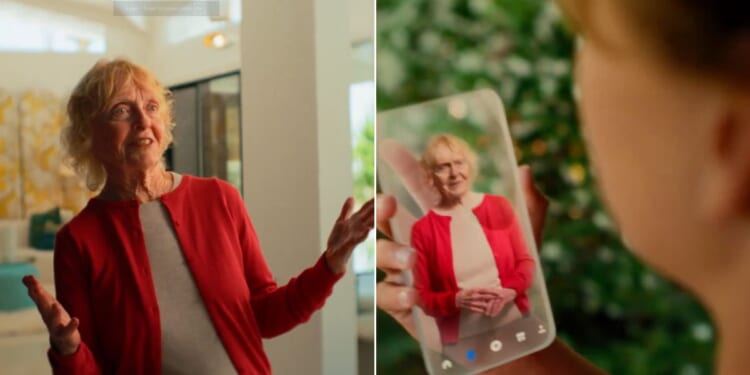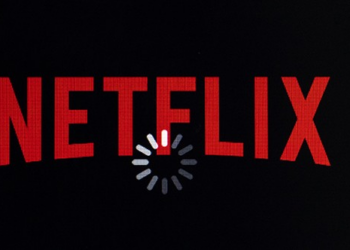The Babylon Bee often laments that the real world has gotten so zany, it’s getting harder to satirize.
“Black Mirror,” the Netflix anthology series that explores what happens in the near-dystopian-future where reliance on technology runs amok, must be thinking the same thing.
Tech company 2wai gave the “Black Mirror” writers a run for their money when company co-founder Calum Worthy shared a video of the company’s newest application.
Before that, however, we should unpack what 2wai does: Its app effectively creates a digital avatar to function as an AI assistant. It’s Amazon’s Alexa feature, if Alexa were a digitized person on a screen:
Sometimes you just need someone to talk to. 🫶
That’s Alina. A real-time avatar who listens, remembers, and keeps your convos private. She’s not AI behind a wall. She’s a companion who feels real.
📱 Talk to Alina on the 2wai app. pic.twitter.com/lGU0QZpa1d
— 2wai (@2waiApp) October 6, 2025
On Tuesday, Worthy took to X to share 2wai’s latest functionality — and it did not go over well with the masses.
What if the loved ones we’ve lost could be part of our future? pic.twitter.com/oFBGekVo1R
— Calum Worthy (@CalumWorthy) November 11, 2025
Are you worried about the impact AI will have on everyday life?
In short, 2wai’s new functionality includes the ability to record a loved one to create a digital recreation of them within the app that you can interact with forever.
Worthy’s video showed a family where a grandmother was able to speak to multiple generations of her family through 2wai, despite having passed away.
John Daniel Davidson, senior editor at The Federalist, tore into the video and the dangers of AI at large.
“It’s impossible to overstate how antihuman and demonic this is,” he posted to X Thursday. “People think the problem with AI is that it will take our jobs. The real danger is that it will rob us of the fullness of our humanity, of real lives and loves, and create instead a dead world of digital shades.”
The Daily Wire’s Michael Knowles, meanwhile, simply shared how he felt after watching Worthy’s video: “Perhaps the most horrifying thing I’ve ever seen.”
Others on social media shared similar horrors:
This is a societal gut-check moment. Either this sort of thing is decisively and viscerally rejected, or we are about to dive headlong into a very literal dystopia. https://t.co/deUAj6Lhtt
— Shane Morris (@GShaneMorris) November 13, 2025
This made me cry tears of horrifying sadness for what our society is becoming.
To say that this is absolutely terrible doesn’t do justice to the awfulness this is.
It is hard to shake the dread I feel come over me when I see this.
— Bartemy Jones (@BartemyS) November 13, 2025
We cannot even predict the kind of damage this will do to people’s brains.
Digital necromancy. https://t.co/CORkHfHHme
— Allie (@allie__voss) November 13, 2025
“We cannot even predict the kind of damage this will do to people’s brains,” another conservative poster wrote. “Digital necromancy.”
On a biblical level, this “digital necromancy” is so very wrong. The Bible warns repeatedly about trying to commune with the dead. This is obviously a different form of it than what people were doing in ancient times, but the principle still stands. It still represents humans attempting to exercise undue power over something that is in God’s dominion — life and death.
Look, I get it. It’s easy to see how this sort of technology would be appealing, especially for those in mourning. And I’m in no position to tell people how to mourn.
But the blurred line between AI and reality is not good for anyone, especially mentally.
Anyone who is having an ongoing conversation with an AI version of a deceased loved one, as depicted in this commercial, is not in a healthy place. The widespread adoption of this sort of tech would be disastrous.
Thankfully, it’s clear most people agree.
Advertise with The Western Journal and reach millions of highly engaged readers, while supporting our work. Advertise Today.


















